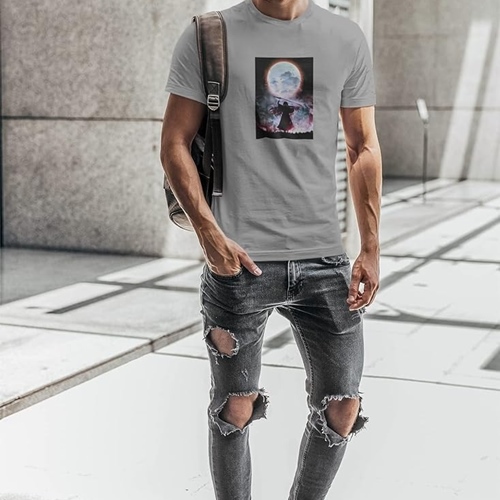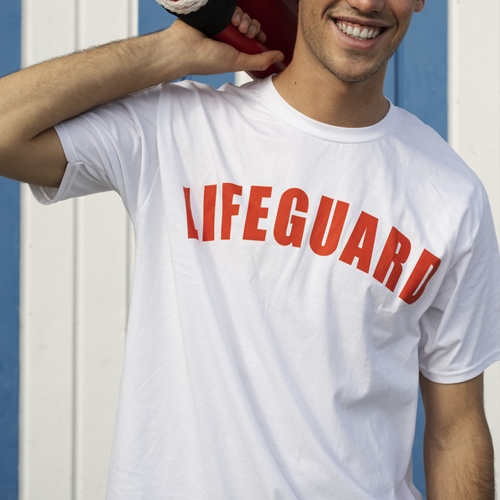LionKingShirt Motto: Environment Always Goes First
It’s time for another insider look at this famous brand. Whenever someone talks about sustainable fashion, they always mention Lion King Shirt: POD T-shirts for Your Whole Family. As many experts worry about the impact of “fast fashion” on our dear planet, this is a POD brand that still managed to stay green and stay afloat on the market. Read on to explore their journey towards sustainability.
The History Of This Green Brand
Like every other company in this world, this brand started small. They were a small band of newly graduated students who dreamed big, who dreamed of producing awesome T-shirts but not at the environment’s expense.
The first days were full of trial and error, as the team had to build a distribution network from scratch. They overcame challenges through extensive research and by building strong partnerships with vendors aligned in values. Through determination and tapping into social impact networks, they were able to bring their sustainable vision to life.
While many competitors only see profits, the brand made sustainability their North Star. Rigorous quality control and constant innovation became core to their brand DNA.
Within 3 years, the team gained wide ecognition. By focusing on organic materials and ethical production methods from the beginning, in combination with trend-driven designs, they aim to prove fashion can be both planet-friendly and stylish. Their startup story provides inspiration for a new generation of sustainable businesses.
Sustainable Practices in Production
1. Eco-Friendly Materials
Lion King Shirt products are made using GOTS certified organic cotton, which utilizes 91% less water and 62% less energy than conventional cotton. They also incorporate recyclable polyester from PET bottles, hemp, wool from ethically raised sheep, and recycled nylon. For dyes, they use low-impact natural plant and mineral-based pigments that don't leach harmful chemicals into waste water.
The team extensively researches and vets suppliers to ensure the environmental sustainability of all raw materials that go into their fabrics and trims.
They partner with suppliers using innovative techniques like low-impact digital printing and plant-based inks. The result is durable, non-toxic shirts that minimizes environmental harm.

T-shirts should never be made at the Earth's expense
2. Ethical Manufacturing Processes
This brand makes ethical manufacturing central to their production process.
They partner exclusively with factories that pay living wages and prioritize worker safety. There are audits at all supplier facilities to ensure standards are upheld. They also cover third-party certification costs for vendors to obtain SA8000, BSCI and other prominent labor accreditations. By fully tracing their supply chain, the brand guarantees transparency and accountability at every step.
3. Reduce and Recycle are the Keys
LionKingShirt only partners with companies that commit to reduce and recycle waste. The factories' state-of-the-art zero waste pattern cutting system utilizes every inch of fabric. All leftover materials and production scraps get recycled by specialist partners into insulation, furniture stuffing, and other renewed products. They've also eliminated plastic packaging by using recycled paper, compostable bags, and biodegradable mailers made from plant fibers. Even used, damaged, or discontinued apparel gets recycled into unique new shirts through their closed-loop initiatives where customers can send back old items.
4. Innovations Make the Motivation
Here’s something that every POD company, now or in the future, must know: if you don’t change, you don’t survive. That’s why the brand is always changing, so that sustainability can live on.
Their R&D team experiments with promising new natural dyes from plant and insect sources which have a lower environmental impact compared to synthetic dyes. They also work alongside universities to develop cutting-edge enzyme-based finishes that give fabrics softness and sheen without toxic chemicals.
There are also renewable energy like solar and wind at their facilities to reduce emissions. They are pioneering the use of recycled fabrics made from ocean plastic, hemp, and other eco-alternatives in their collections as well. By actively pursuing advances across the production chain, the brand raises the bar for sustainability.
Community and Environmental Impact
1. Supporting Local Communities
This generous brand donates a portion of profits to provide access to education, clean water and business training in communities touched by their supply chain.
For example, their partnership has helped 500 women in a local artisan collective achieve a steady income through handcrafting accessories.
The crew directly supports artisan cooperatives and local communities connected to their supply chain. They ensure fair pay reaches workers by partnering with collectives rather than exploitative middlemen. A portion of profits is donated to provide clean water, business training, and education access in these communities. For example, their partnership supports a women's hand-weaving collective in India with steady income, finance training, and machines for efficiently filling orders. By empowering these groups beyond manufacturing, they uplift POD communities worldwide.
2. Environmental Conservation Efforts
The brand invests heavily in environmental projects to offset their production impact. They donate 1% of all sales to reforestation programs planting native tree species in South America, Africa and Southeast Asia. So far, they have funded the planting of over 50,000 trees to help revitalize landscapes and ecosystems. They also contributes to NGOs providing clean drinking water in cotton-growing communities prone to water scarcity. Additionally, they partner with organizations using renewable filtration systems to reduce industrial textile runoff in rivers and oceans.
Through these initiatives, the brand is committed to giving back and improving sustainability beyond their own supply chain.

Nature is always worth protecting in this company
Challenges and Future Goals
1. Overcoming Sustainability Challenges
As a sustainable company, the brand faces numerous challenges in sourcing eco-materials and ethical production partners while keeping costs reasonable. Fluctuating organic cotton prices and availability present constant obstacles. However, their long-term supplier contracts and buying power help mitigate cost variability.
The team also works diligently to streamline production and use technology to add efficiency wherever possible. And they are continuously innovating new solutions like plant-based dyes and recycled fabrics to overcome sustainability challenges. Their commitment to their core values persists no matter the difficulty.
2. Future Goals
Looking ahead, the brand aims to continue pushing the fashion industry towards a greener future. You heard it right: in the next 5 years or so, their supply chain is gonna be made of 100% recycled or reusable materials. They hope to fully close the loop on production waste through upcycling initiatives. And they will expand community partnerships providing education and empowerment beyond manufacturing. Their passion for sustainability will drive continual improvement in all areas of their business.
Wrapping Things Up
At LionKingShirt, ecological stewardship and social ethics are woven into every fiber. They prove sustainability and style are not mutually exclusive. By supporting their mission, consumers can accelerate much-needed change in the apparel industry. Check out their thoughtfully designed collections to dress with purpose. Together, we can cultivate a vibrant fashion future built on people and planet over profits.
The journey toward sustainability is an ongoing one, but it is possible and profitable. By supporting brands who pave the way for eco-fashion, consumers can vote for people and the planet with their dollars.
Check out more tee collections at https://www.facebook.com/lionkingshirt/ and join the movement towards a greener future of apparel manufacturing!